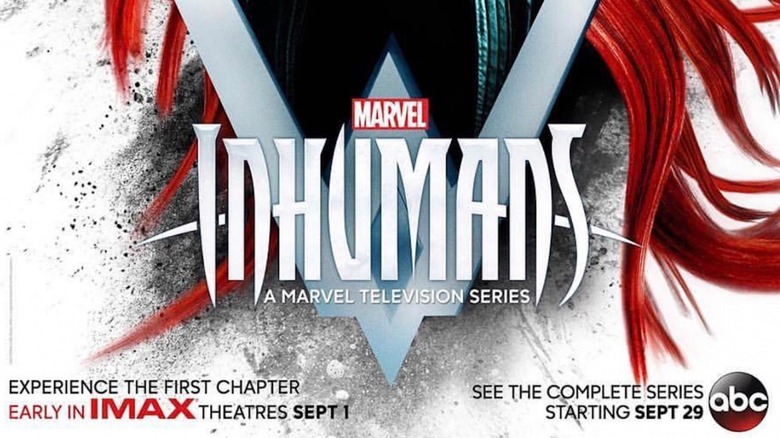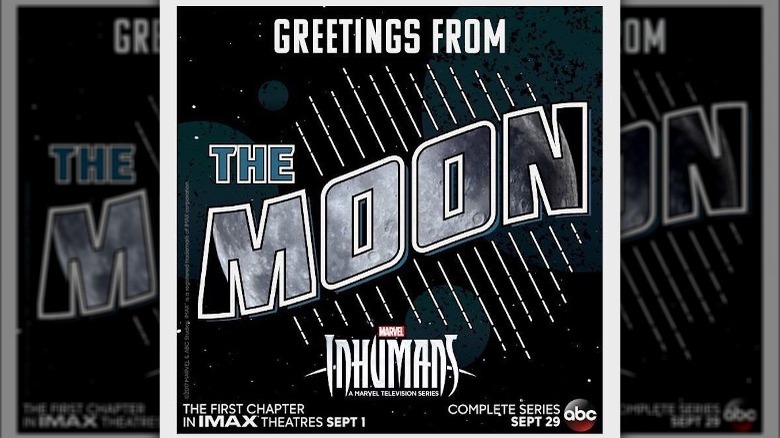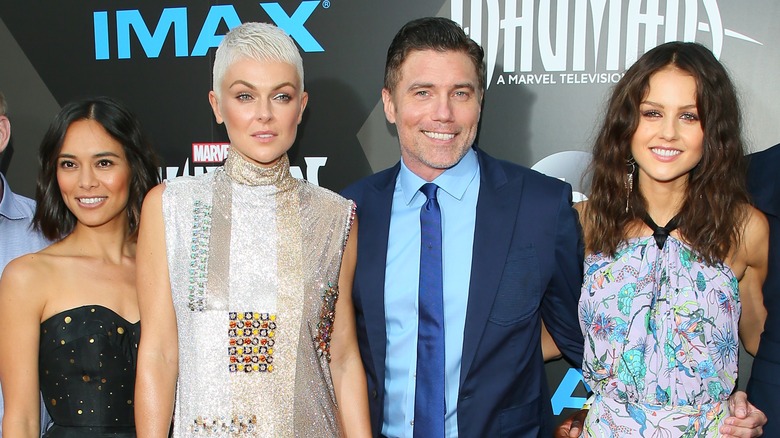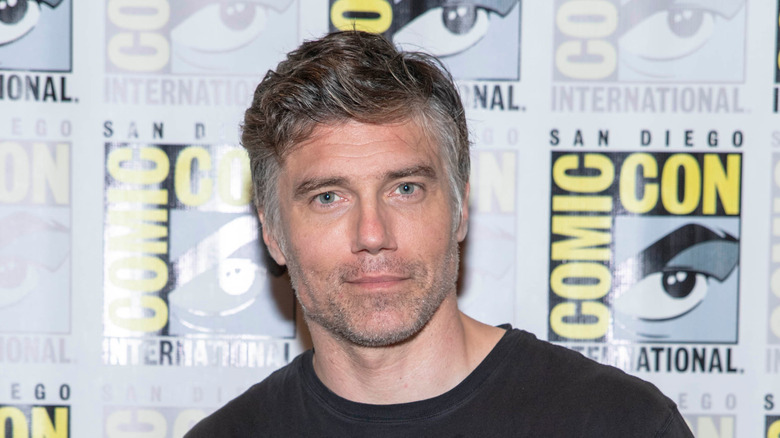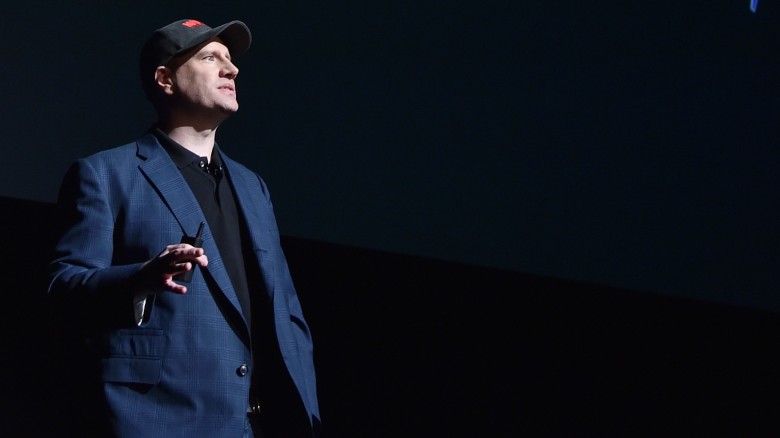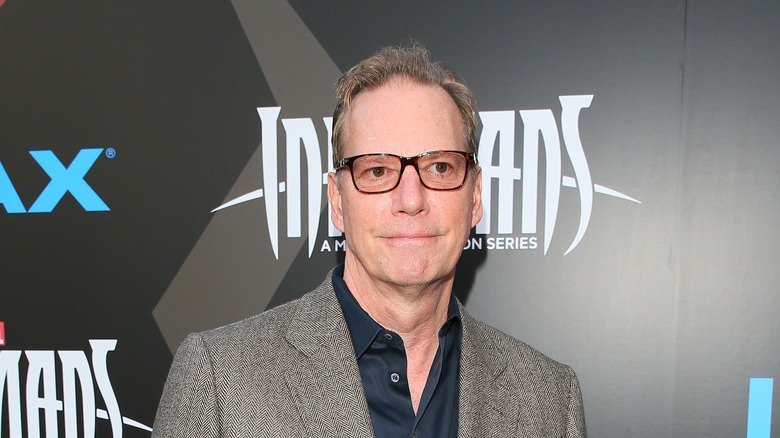Why Marvel's Inhumans Will Be Better Than You Think
Of all of the announced projects in the Marvel Cinematic Universe, none has been more perpetually up-in-the-air than Marvel's Inhumans. Originally announced as a feature film slated for release in 2019, the project was pulled from the schedule for some time before resurfacing as a forthcoming ABC television series. While this constant state of flux spells trouble for some observers, there are a lot of reasons to think the project is not only on the right track, but just may blow away everybody's expectations:
They've been slowly introducing the concept for years
While fans have long been divided on ABC's Marvel's Agents of S.H.I.E.L.D., Marvel Studios head honcho, Kevin Feige, has shown a consistent willingness to let the show introduce new concepts to the MCU as a whole. The race known as Inhumans appeared in Marvel comics as far back as 1965, and their story (in a nutshell) is as follows: millennia ago, an alien race called the Kree performed genetic experiments on primitive homo sapiens, in an attempt to breed soldiers to use against their enemies, the Skrulls (known in the MCU as the Chitauri). The experiments were abandoned, and the Inhuman society developed on Earth separately from the rest of the population, in the city of Attilan. When exposed to mutagenic minerals called Terrigen Crystals—often in the form of a mist—Inhumans mutate, and are granted widely varying powers and abilities.
The MCU's version of this race debuted in season 2 of Agents of S.H.I.E.L.D., and Inhumans (and the public's response to them) has remained a key element of the show's storylines ever since. Female lead Daisy Johnson (Chloe Bennet) was revealed to be Inhuman midway through season 2, and underwent the "Terrigenesis" process, giving her the ability to vibrate molecules on scales large and small.
Fans of the show — which has always struggled in the ratings department — appreciated that it was given the opportunity to do this narrative heavy lifting, and relieve the future Inhumans project of a huge burden in terms of exposition. The show also featured the first appearance of the Kree, which will almost certainly figure into the upcoming project as well.
They're the MCU's answer to mutants
As you may be aware, the film and TV rights to Marvel's properties have long been split up. While Sony was finally convinced to make a deal to allow Spider-Man into the MCU, Feige himself has gone so far as to call such a deal with Fox "impossible." Along with the endless pit of despair that is the Fantastic Four, Fox also controls the film rights to the X-Men and all of their related properties—and we mean all, which is why you'll never, ever hear a character in the MCU utter the word "mutant," not even as a generic insult to somebody who cut them off in traffic.
Of course, the concept of mutants has forever been used in the comics as a way to easily explain all sorts of fantastic powers manifesting in ordinary people. Whether they were born this way or Weapon X/Hydra/Whoever-else made them this way, if they have powers, they're mutants. The concept of "Inhumans" can now be used in the exact same way in Marvel Studios' TV and film properties—in fact, it already has. In their appearances in Agents of S.H.I.E.L.D., villains Hive and Hellfire were both presented as Inhumans, while their comic counterparts were not.
It's a whole new team
While fans of the MCU are now familiar with the concept of Inhumans in general, the TV series—like the comics—will focus on the Inhuman Royal Family, lead by King Black Bolt and Queen Medusa. Along with the rest of the family and their trusty canine companion (more on that in a moment), these Inhumans function as a superhero team, and in the comics they've fought alongside the Avengers and Fantastic Four—individual family members have even filled in on both squads.
While the Avengers and Guardians of the Galaxy dominate the multiplex, and Netflix bingers can look forward to the crossover miniseries The Defenders later this year, Inhumans gives Marvel's ABC TV division an awesome team of its own to play with. They're a colorful cast of characters with a strong family dynamic and a wide range of crazy abilities: Queen Medusa has prehensile hair (no snakes though), her sister Crystal can manipulate all four elements, and then there's the King himself...
Black Bolt is awesome
Black Bolt is the voice of authority in the Inhuman kingdom, which is ironic, as he rarely utters a sound. His ability to harness ambient electrons is directly linked to the speech center of his brain, and even the tiniest peep out of his mouth will cause ... a disturbance. That is to say, his barest whisper could cause tornado-level destruction. At a full-on shout, Black Bolt could easily destroy a planet. Eat your heart out, Dragonborn.
Obviously, projecting strength and regal intensity without speaking will be a challenge for the man cast in the role. Anson Mount, star of the AMC Western drama Hell on Wheels, was tapped for the lead in February 2017, and Marvel Television boss Jeph Loeb thinks he's up for it. "Anson loves the challenge of playing a character who will only communicate silently," Loeb said in making the announcement. "His enthusiasm mixed with his imposing, almost regal persona made it easy to see why he is our Black Bolt."
The Inhuman King may not be a household name, but it's easy to forget that, not so long ago, Iron Man wasn't either. With the core members of the Avengers' time in the MCU likely winding down, Black Bolt is another "B-level" character who could rise to A-level prominence.
There's a super-dog
Okay, this one we're just going to throw right out there: the Royal Family have a dog. It's a one-ton bulldog named Lockjaw who can teleport itself and others, serves as the family's primary form of transportation, and can psychically "sniff out" people and objects across space and even other dimensions. If this doesn't sound absolutely amazing to you, we'd like you to think back to the first time you heard how an upcoming Marvel film was going to feature a talking raccoon.
It had been speculated that Lockjaw might appear as a normal-sized pooch, or even not appear at all. But recent set photos captured an image of a car-sized, dog-shaped blue prop that confirms fans will get the accurate version of Lockjaw they'd been hoping for. It may seem like the CGI budget for this pupper alone would be prohibitively expensive for practically any other television show, and it may be—but Inhumans is getting a financial boost from a source no TV project before it has ...
The first two episodes are debuting in IMAX theaters
In November of 2016, ABC, IMAX, and Marvel Television announced they would partner to debut the first two episodes of Inhumans' eight-episode debut season in IMAX theaters. The 80-minute presentation will begin a two-week theatrical run starting on September 1, 2017, with the series debuting Tuesday nights on ABC beginning on September 26.
This represents an incredibly bold move for both Marvel television and IMAX. No TV series has ever debuted in theaters before, let alone IMAX theaters. This indicates a level of spectacle not normally associated with network television. Marvel's undeniable box office power is bound to entice some moviegoers, who wouldn't have otherwise tuned in to a new ABC series, to do just that.
It's also worth noting that Agents of S.H.I.E.L.D. also airs on Tuesday nights. A successful Inhumans theatrical debut could draw more eyes to Marvel's flagship series, give ABC a new super-team that comes ready for prime time, and pioneer a brand new cross-promotional model for TV and film ... all at once. The fact that Inhumans is the property that Marvel has chosen to do this with speaks volumes about the project's potential.
Marvel's risks just aren't too risky anymore
The whole thing may seem like a very risky endeavor but, as we've previously pointed out, building an interconnected cinematic universe with all of Marvel's "B-list" heroes also seemed risky before 2008. Marvel has built the highest grossing film franchise of all time on these types of calculated risks, and at least one MCU film every year seems to be the subject of a dozen Internet think pieces proclaiming it "Marvel's biggest risk yet," and speculating that it could be the franchise's first big misstep. Guardians of the Galaxy, Ant-Man, and Doctor Strange all carried this pre-release baggage and, at the risk of stating the obvious, they all worked out just fine.
Inhumans has also garnered this type of negative buzz due to its chaotic road to production, but Feige has insisted all along—even when the previously planned feature film was pulled from the slate without being rescheduled—that the project was never canceled, but simply didn't fit into the emerging narrative planned for Phase Three. The addition of Spider-Man: Homecoming and Ant-Man and the Wasp to the Phase Three schedule was also a factor, but with the narrative kinks apparently worked out, Marvel's "risky" solution to bringing Inhumans to the screen is likely to look a lot less risky this fall.
Marvel's ABC TV division has a chip on its shoulder
For as much as the MCU's fans seem to love the films and Netflix series unconditionally, the ABC television branch has always been the black sheep of the family. Agents of S.H.I.E.L.D. is on the cancellation bubble yearly, despite some viewers feeling that every season has been an improvement, and Agent Carter—an excellent series that fans and critics loved—was axed after two seasons. They've got to love the chance to hit an undisputed home run with an important property, and Marvel's strategy with Inhumans proves just how important a property it is.
Of course, a common critique of ABC's output is a perceived lack of connectedness between the shows and the films ("Agent Coulson died in the movies but is on TV? Whaaaat?"), a perception that may not be entirely justified ("they used the body of a Kree from Guardians of the Galaxy to bring him back, that's what!") For his part, Feige says that it's mostly a matter of timing, as film production and TV production run on completely different schedules, and that crossovers between the various TV projects and the films are inevitable. Inhumans may provide the strongest evidence yet that he's not just blowing smoke.
It'll probably provide the strongest link yet to the movies
Inhumans began life as a film project, so it makes little sense to confine an alien superhero team permanently to a small-screen world. The IMAX experiment, in addition to being a brilliant standalone marketing ploy, could just as easily be an attempt to actually bridge the film and TV worlds in the minds of viewers. If it works, it could provide strong incentive for the various branches of the sprawling MCU to better coordinate their narratives and provide more opportunities for crossovers.
Largely left out of this discussion have been the Netflix series, which—even moreso than ABC's series—are seen as being isolated from the larger MCU. While it's true that the "street-level" heroes of Netflix may never get feature films of their own, Marvel's choice of showrunner for Inhumans suggests that crossover plans between all of the MCU's branches may not be nearly as far from the minds of executives as fans might think.
Same goes for the Netflix series
Scott Buck, a writer and producer who has worked on such acclaimed series as Six Feet Under and Dexter, served as showrunner on the first season of Marvel's Iron Fist, which debuts on Netflix in March 2017 and will lead up to the crossover miniseries The Defenders. Late last year, it was revealed that Buck will fill the same role for Inhumans—a puzzling choice if Marvel's TV divisions indeed intended to remain separate from each other, but an obvious one if there were crossover plans between them in the works.
As the Marvel Cinematic Universe approaches its tenth anniversary and prepares to tell the epic saga that will wrap up its first enormous, three-phase story arc, it would make perfect sense for Marvel to empower all the branches of the MCU to play more easily together, and open up richer storytelling possibilities for the future. Bringing a Netflix producer on to run an ABC show that will screen episodes in theaters seems like a pretty solid indication that this is exactly what's happening.
